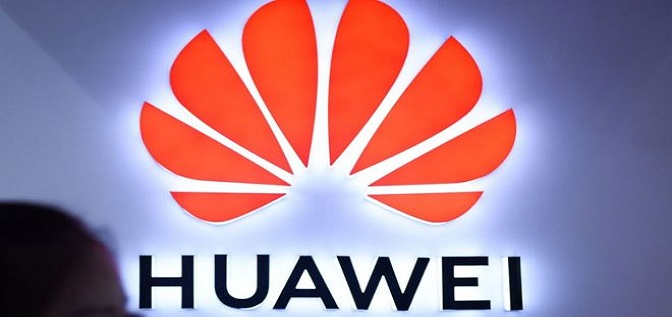Telecom
Gartner Ranks Huawei Cloud World’s Fifth Largest IaaS Provider

Gartner Inc, market research firm, has reported a 202.8 per cent surge in Huawei Cloud’s revenue.

This, the report, said has placed the product in the top five list of cloud IaaS providers in the world.
According to the research firm, this is the second consecutive year of over 200% growth for Huawei Cloud in the IaaS market, braking Huawei Cloud into the top five IaaS vendors with 4.2% in global market share.
The telecoms giant was one of the first vendors to invest in cloud-native technologies.
A statement said: “HUAWEI CLOUD helped establish the Cloud Native Computing Foundation (CNCF) in 2015, and is the only founding member and the first platinum member of the CNCF, contributing more than 130 core features to the CNCF community.
“By December 2020, HUAWEI CLOUD had launched more than 220 cloud services and more than 210 solutions. Through technology partnerships, HUAWEI CLOUD developed more than 20,000 partners, attracted 1.8 million developers, and launched more than 4,000 applications in the Marketplace.
“Since its launch on South Africa in 2019, HUAWEI CLOUD has experienced exponential growth in the cloud market. Currently, the technology giant has four points of presence in Africa: two in South Africa, one in Nigeria and one in Kenya.”
Stone He, president for the Huawei Cloud in Southern Africa, said: “The impact of the Covid-19 pandemic has resulted in an increased move to the cloud, and need for technology enablers. We plan to increase the number of local, data centre’s as the demand for cloud services grows. We currently serve customers in 12 countries, with plans to grow rapidly as the need arises.
“In South Africa, during 2020, Huawei has seen great business growth in the public cloud and hybrid cloud. South Africa’s Automobile Association (AASA), a 91-year-old AASA is a non-profit organisation that provides road security, roadside assistance and vehicle-related services to its five million registered users and 700 000 subscribers. Through its partnership with HUAWEI CLOUD, they have overcome infrastructure challenges and reduced their costs by around 10% per year.
“We have a unique strategy around our business model, with the focus on joint value creation with our partners and customers. We are committed to helping our partners grow their business and strengthen their competitive edge, through joint go-to-market strategies. Our business model is focused on j
Telecom
TikTok, Instagram Blamed in US Youth Suicide Lawsuit

Major social media giants Meta Platforms, TikTok and Alphabet’s YouTube will face a landmark jury trial this week in Los Angeles County Superior Court over allegations that their addictive designs have fuelled a youth mental health crisis, marking the first such case to reach this stage.

Social Media
The pivotal personal injury lawsuit centres on a 19-year-old Californian woman identified as K.G.M., who claims her childhood immersion in Instagram, Facebook, YouTube and TikTok—engineered with endless scrolls, autoplay videos, notifications and algorithms—sparked severe anxiety, depression and suicidal thoughts.
Dozens of similar suits have surged since 2022 from families, schools and states, accusing the firms of burying internal research on teen harms while prioritising ad revenue through youth-targeted engagement hooks, despite Section 230 protections for user content.
Plaintiffs seek damages and design overhauls, arguing platforms bypassed parents and preyed on vulnerable kids; defendants counter there’s no clinical “social media addiction” diagnosis, no proven causation—kids with issues often use less—and they’ve added safeguards like parental controls and time limits.
Echoing Australia’s under-16 bans, the trial will scrutinise thousands of internal documents, expert testimonies and K.G.M.’s story, potentially expanding tech liability amid debates where studies show complex links, not direct causation, between screen time and disorders like eating issues or self-harm.
A win could mandate warning labels, age gates or algorithm tweaks, reshaping global platforms as U.S. Surgeon General advisories and global scrutiny intensify pressure on Big Tech to prioritise child safety over profits.
Telecom
Meta Tests Paid Subscriptions Across Instagram, Facebook, WhatsApp

Meta is gearing up to trial paid subscription services on Instagram, Facebook, and WhatsApp, aiming to diversify revenue streams beyond advertising while maintaining free core access for all users.

Meta
The subscriptions will offer enhanced tools tailored for everyday users, creators, and businesses, including advanced content creation, sharing, and workflow features distinct from the existing Meta Verified verification program. Unlike a uniform rollout, Meta plans varied testing formats per app to match diverse audiences, experimenting with feature bundles based on user feedback to refine the model.
A key element involves integrating Manus, the autonomous agent firm Meta acquired for $2 billion in December, into these apps alongside its enterprise sales. Manus enables complex task automation with minimal input, with early signs like Instagram shortcuts already spotted by reverse engineer Alessandro Paluzzi.
Video tools feature prominently: Meta’s Vibes short-form video generator in the Meta AI app shifts to freemium, where paid tiers unlock higher monthly creation limits beyond the free baseline. On Instagram, subscriptions could enable unlimited audience lists, non-follower tracking, and anonymous Story views, though specifics for Facebook and WhatsApp remain under wraps.
Drawing from Meta Verified’s 2023 launch—which provides badges, support, and protection mainly for creators—these broader plans target wider appeal amid industry shifts. Ad growth slows against TikTok competition, while Snapchat+ boasts 16 million subscribers at $3.99 monthly, proving demand for value-driven paid perks despite subscription fatigue risks from streaming and storage fees.
Meta will phase tests gradually, prioritizing feedback to shape long-term viability without alienating free users.
Telecom
New Investment Fund Targets Acceleration of Emerging Technology in Nigeria

The International Rescue Committee (IRC) has announced the formation of Airbel Ventures, a new humanitarian impact investing fund aimed at accelerating the introduction and scaling of breakthrough technologies in crisis-affected communities.

The fund will invest in companies whose ideas have the potential to change humanitarian response, including digital infrastructure for frontline health systems and climate-resilient agriculture.
The launch of Airbel Ventures follows a period of rapid innovation at the IRC, despite the humanitarian sector facing record funding cuts.
In the past year, the IRC’s Airbel Impact Lab has advanced more than twenty Artificial Intelligence (AI) and technology initiatives—from anticipatory action tools powered by climate and vulnerability data, to frontline service delivery using safe, orchestrated AI systems, to breakthrough diagnostic tools for emerging diseases.
Airbel Ventures’ first impact investment is in Signalytic, a company delivering solar-powered computing devices that ensure reliable electricity and connectivity for remote health facilities.
Following the investment, the IRC will pilot Signalytic’s technology with its Nigeria Health team, demonstrating the viability of next-generation digital infrastructure in humanitarian settings.
“We know breakthrough solutions already exist—what’s missing is the path to scale in humanitarian contexts,” said Dr. Jeannie Annan, Senior Vice President for Research & Innovation at the IRC and head of the Airbel Impact Lab.

 News2 days ago
News2 days agoLIRS to Invoke NTAA to Recover Unpaid Taxes from Bank Accounts, Others

 News2 days ago
News2 days agoAnambra Cuts Monday Pay to Kill Sit-at-Home

 E-Financial2 days ago
E-Financial2 days agoFirst Asset Management Receives Upgraded Ratings from Agusto &Co and DataPro

 General News2 days ago
General News2 days agoNigeria Treats Religious Violence as Attack on State – NSA Ribadu

 E-Financial2 days ago
E-Financial2 days agoNIBSS, Others Flag 13,417 Nigerian Fraudsters on Person of Interest Portal

 E-Financial2 days ago
E-Financial2 days agoCBN Prepares Fresh Debit Card Rules to Improve ATM Services

 News1 day ago
News1 day agoTech Executives Double Down on AI, Talent and Adaptive Strategies to Lead in the Intelligence Age

 E-Financial1 day ago
E-Financial1 day agoCBN Upgrades Licences of Opay, Moniepoint, Kuda, Palmpay, Paga to National Status


























